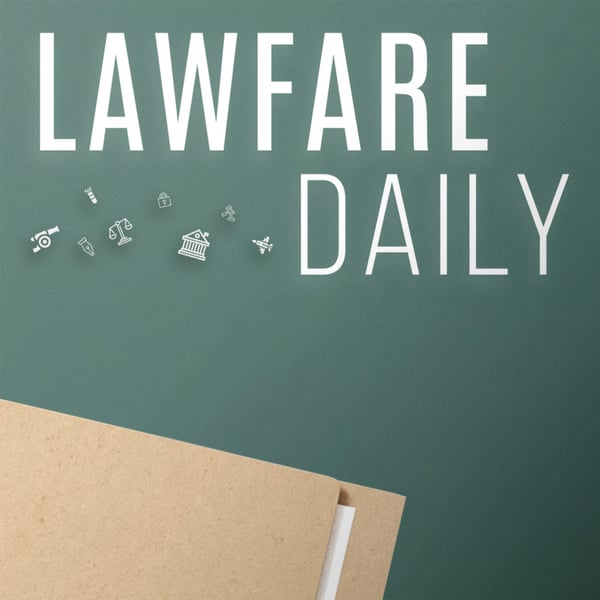Scott Anderson on an Overlooked Presidential Election Vulnerability
The Lawfare Podcast
The Lawfare Institute
4.7 • 6.2K Ratings
🗓️ 18 April 2022
⏱️ 41 minutes
🧾️ Download transcript
Summary
Scott R. Anderson is a senior editor at Lawfare, a fellow at the Brookings Institution and a senior fellow with the National Security Law Program at Columbia Law School. He’s also the author of a new Politico Magazine piece that raises an often overlooked vulnerability in the presidential election. A lot of attention after Jan. 6 and Nov. 2020 has rightly gone to the Electoral Count Act and other similar reforms, but Scott argues that if Congress really wants to protect the presidency, it can't just reform the process for counting electoral votes. Jacob Schulz sat down with Scott to talk about his Politico article and about the broader landscape of electoral reforms in the aftermath of 2020.
Support this show http://supporter.acast.com/lawfare.
Hosted on Acast. See acast.com/privacy for more information.
Transcript
Click on a timestamp to play from that location
| 0:00.0 | The following podcast contains advertising to access an ad-free version of the LawFair |
| 0:07.2 | podcast become a material supporter of LawFair at patreon.com slash LawFair. |
| 0:14.7 | That's patreon.com slash LawFair. |
| 0:18.2 | Also, check out LawFair's other podcast offerings, rational security, chatter, LawFair |
| 0:25.6 | no bull and the aftermath. |
| 0:33.9 | I think that 20th Amendment strongly suggests that there actually is a constitutional barrier |
| 0:37.6 | in the failure to qualify circumstances for the Speaker of the House or the President |
| 0:41.8 | Pro Temporate to become the acting president, but it sets up a different set of perverse |
| 0:46.1 | incentives than if it was just the cabinet officials. |
| 0:48.7 | That's why I think probably what makes the most sense is to separate out the scenarios |
| 0:53.0 | addressed by the 20th Amendment from those addressed by Article 2, which again for political |
| 0:56.8 | and policy reasons also makes sense in my mind to treat separately and set up separate rules |
| 1:00.7 | for the two. |
| 1:01.7 | In my mind, handing over the presidency to cabinet officials or whoever makes sense when |
| 1:07.0 | it's an interruption in the middle of a presidential term, but if you're talking about between elections, |
| 1:11.5 | you've got to come up with a separate system that doesn't present perverse political |
| 1:14.5 | incentives. |
| 1:15.8 | That's when the mechanism, I talk about which are handing it over to nonpartisans or through |
| 1:20.6 | a process that's not clear to give authority to potentially a co-partisan of the majority |
| 1:26.2 | of the House, makes a lot more sense in my mind. |
| 1:30.7 | Jacob Schultz and this is the Law Fair Podcast, April 18th, 2022. |
| 1:37.9 | Scott Arnerson is a senior editor at Law Fair and a fellow at Brookings as well as a senior |
... |
Please login to see the full transcript.
Disclaimer: The podcast and artwork embedded on this page are from The Lawfare Institute, and are the property of its owner and not affiliated with or endorsed by Tapesearch.
Generated transcripts are the property of The Lawfare Institute and are distributed freely under the Fair Use doctrine. Transcripts generated by Tapesearch are not guaranteed to be accurate.
Copyright © Tapesearch 2025.

